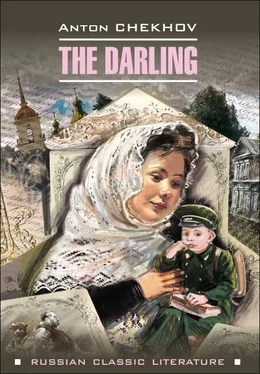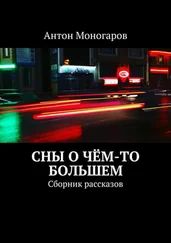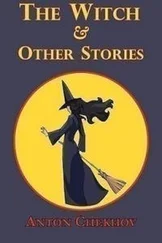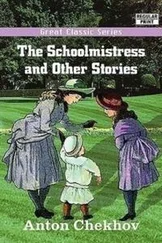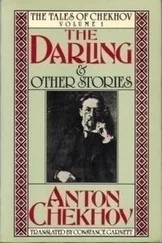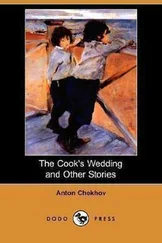Антон Чехов - The darling / Душечка. Сборник рассказов
Здесь есть возможность читать онлайн «Антон Чехов - The darling / Душечка. Сборник рассказов» — ознакомительный отрывок электронной книги совершенно бесплатно, а после прочтения отрывка купить полную версию. В некоторых случаях можно слушать аудио, скачать через торрент в формате fb2 и присутствует краткое содержание. Год выпуска: 2019, ISBN: 2019, Издательство: Литагент Каро, Жанр: Классическая проза, Русская классическая проза, Прочая научная литература, на английском языке. Описание произведения, (предисловие) а так же отзывы посетителей доступны на портале библиотеки ЛибКат.
- Название:The darling / Душечка. Сборник рассказов
- Автор:
- Издательство:Литагент Каро
- Жанр:
- Год:2019
- ISBN:978-5-9925-1149-9
- Рейтинг книги:5 / 5. Голосов: 1
-
Избранное:Добавить в избранное
- Отзывы:
-
Ваша оценка:
- 100
- 1
- 2
- 3
- 4
- 5
The darling / Душечка. Сборник рассказов: краткое содержание, описание и аннотация
Предлагаем к чтению аннотацию, описание, краткое содержание или предисловие (зависит от того, что написал сам автор книги «The darling / Душечка. Сборник рассказов»). Если вы не нашли необходимую информацию о книге — напишите в комментариях, мы постараемся отыскать её.
The darling / Душечка. Сборник рассказов — читать онлайн ознакомительный отрывок
Ниже представлен текст книги, разбитый по страницам. Система сохранения места последней прочитанной страницы, позволяет с удобством читать онлайн бесплатно книгу «The darling / Душечка. Сборник рассказов», без необходимости каждый раз заново искать на чём Вы остановились. Поставьте закладку, и сможете в любой момент перейти на страницу, на которой закончили чтение.
Интервал:
Закладка:
Anton Chekhov
THE DARLING Selected short stories
THE DARLING
Olenka, the daughter of the retired collegiate assessor 1 1 assessor – a person which advises a judge or official committee on matters that demand special knowledge
, Plemyanniakov, was sitting in her back porch, lost in thought. It was hot, the flies were persistent and teasing, and it was pleasant to reflect that it would soon be evening. Dark rainclouds were gathering from the east, and bringing from time to time a breath of moisture in the air.
Kukin, who was the manager of an open-air theatre called the “Tivoli”, and who lived in the lodge, was standing in the middle of the garden looking at the sky.
“Again!” he observed despairingly. “It’s going to rain again! It is raining every day, as though to spite me. I might as well hang myself! It’s ruin! Fearful losses every day.”
He flung up his hands, and went on, addressing Olenka:
“There! that’s the life we lead, Olga Semyonovna. It’s enough to make one cry. One works and does one’s utmost, one wears oneself out, getting no sleep at night, and racks one’s brain what to do for the best. And then what happens? To begin with, one’s public is ignorant, boorish. I give them the very best operetta, a dainty masque, first rate music-hall artists. But do you suppose that’s what they want! They don’t understand anything of that sort. They want a clown; what they ask for is vulgarity. And then look at the weather! Almost every evening it rains. It started on the tenth of May, and it’s kept it up all May and June. It’s simply awful! The public doesn’t come, but I’ve to pay the rent just the same, and pay the artists.”
The next evening the clouds would gather again, and Kukin would say with an hysterical laugh:
“Well, rain away, then! Flood the garden, drown me! Damn my luck in this world and the next! Let the artists have me up! Send me to prison! – to Siberia! – the scaffold! Ha, ha, ha!”
And next day the same thing.
Olenka listened to Kukin with silent gravity, and sometimes tears came into her eyes. In the end his misfortunes touched her; she grew to love him. He was a small thin man, with a yellow face, and curls combed forward on his forehead. He spoke in a thin tenor; as he talked his mouth worked on one side, and there was always an expression of despair on his face; yet he aroused a deep and genuine affection in her. She was always fond of some one, and could not exist without loving. In earlier days she had loved her papa, who now sat in a darkened room, breathing with difficulty; she had loved her aunt who used to come every other year from Bryansk; and before that, when she was at school, she had loved her French master. She was a gentle, soft-hearted, compassionate girl, with mild, tender eyes and very good health. At the sight of her round rosy cheeks, her soft white neck with a little dark mole on it, and the kind, naїve smile, which came into her face when she listened to anything pleasant, men thought, “Yes, not half bad,” and smiled too, while lady visitors could not refrain from seizing her hand in the middle of a conversation, exclaiming in a gush of delight, “You darling!”
The house in which she had lived from her birth upwards, and which was left her in her father’s will, was at the extreme end of the town, not far from the “Tivoli”. In the evenings and at night she could head the band playing, and the crackling and banging of fireworks, and it seemed to her that it was Kukin struggling with his destiny, storming the entrenchments of his chief foe, the indifferent public; there was a sweet thrill at her heart, she had no desire to sleep, and when he returned home at day-break, she tapped softly at her bedroom window, and showing him only her face and one shoulder through the curtain, she gave him a friendly smile …
He proposed to her, and they were married. And when he had a closer view of her neck and her plump, fine shoulders, he threw up his hands, and said:
“You darling!”
He was happy, but as it rained on the day and night of his wedding, his face still retained an expression of despair.
They got on very well together. She used to sit in his office, to look after things in the “Tivoli”, to put down the accounts and pay the wages. And her rosy cheeks, her sweet, naїve, radiant smile, were to be seen now at the office window, now in the refreshment bar or behind the scenes of the theatre. And already she used to say to her acquaintances that the theatre was the chief and most important thing in life and that it was only through the drama that one could derive true enjoyment and become cultivated and humane.
“But do you suppose the public understands that?” she used to say. “What they want is a clown. Yesterday we gave Faust Inside Out , and almost all the boxes were empty; but if Vanitchka and I had been producing some vulgar thing, I assure you the theatre would have been packed. Tomorrow Vanitchka and I are doing Orpheus in Hell . Do come.”
And what Kukin said about the theatre and the actors she repeated. Like him she despised the public for their ignorance and their indifference to art; she took part in the rehearsals, she corrected the actors, she kept an eye on the behaviour of the musicians, and when there was an unfavourable notice in the local paper, she shed tears, and then went to the editor’s office to set things right.
The actors were fond of her and used to call her “Vanitchka and I,” and “the darling”; she was sorry for them and used to lend them small sums of money, and if they deceived her, she used to shed a few tears in private, but did not complain to her husband.
They got on well in the winter too. They took the theatre in the town for the whole winter, and let it for short terms to a Little Russian company, or to a conjurer, or to a local dramatic society. Olenka grew stouter, and was always beaming with satisfaction, while Kukin grew thinner and yellower, and continually complained of their terrible losses, although he had not done badly all the winter. He used to cough at night, and she used to give him hot raspberry tea or lime-flower water, to rub him with eau-de-Cologne 2 2 eau-de-Cologne – ( French ) light perfume
and to wrap him in her warm shawls.
“You’re such a sweet pet!” she used to say with perfect sincerity, stroking his hair. “You’re such a pretty dear!”
Towards Lent he went to Moscow to collect a new troupe, and without him she could not sleep, but sat all night at her window, looking at the stars, and she compared herself with the hens, who are awake all night and uneasy when the cock is not in the henhouse. Kukin was detained in Moscow, and wrote that he would be back at Easter, adding some instructions about the “Tivoli”. But on the Sunday before Easter, late in the evening, came a sudden ominous knock at the gate; some one was hammering on the gate as though on a barrel – boom, boom, boom! The drowsy cook went flopping with her bare feet through the puddles, as she ran to open the gate.
“Please open,” said some one outside in a thick bass. “There is a telegram for you.”
Olenka had received telegrams from her husband before, but this time for some reason she felt numb with terror. With shaking hands she opened the telegram and read as follows:
That was how it was written in the telegram – “fufuneral,” and the utterly incomprehensible word “immate.” It was signed by the stage manager of the operatic company.
“My darling!” sobbed Olenka. “Vanka, my precious, my darling! Why did I ever meet you! Why did I know you and love you! Your poor heart-broken Olenka is alone without you!”
Читать дальшеИнтервал:
Закладка:
Похожие книги на «The darling / Душечка. Сборник рассказов»
Представляем Вашему вниманию похожие книги на «The darling / Душечка. Сборник рассказов» списком для выбора. Мы отобрали схожую по названию и смыслу литературу в надежде предоставить читателям больше вариантов отыскать новые, интересные, ещё непрочитанные произведения.
Обсуждение, отзывы о книге «The darling / Душечка. Сборник рассказов» и просто собственные мнения читателей. Оставьте ваши комментарии, напишите, что Вы думаете о произведении, его смысле или главных героях. Укажите что конкретно понравилось, а что нет, и почему Вы так считаете.
